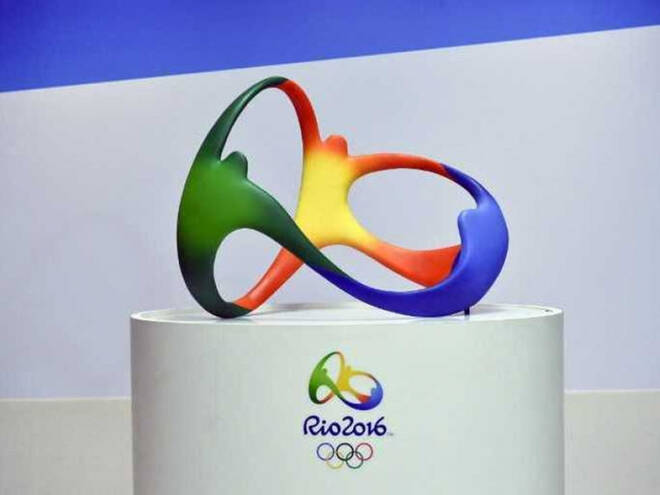Advertisement
Advertisement
The Brazilian Real Reaching For Gold
By:
The countdown to the opening events in Brazil is underway. With hundreds of thousands of visitors showing up in Rio de Janeiro for the 2016 Olympics,
The countdown to the opening events in Brazil is underway. With hundreds of thousands of visitors showing up in Rio de Janeiro for the 2016 Olympics, which begin Friday, hotel owners have been dusting off something they haven’t used for some time: their “No Vacancy” signs.
But those signs will likely go back into the closet after the games are over. Brazil’s hotel industry has been reeling from the effects of a prolonged recession, a political crisis and the outbreak of the Zika virus. Over the last few months’ hotel construction has been at a heroic pace to prepare for the Games. Building and roadworks for the Olympics has given a boom to the ailing Brazilian economy.
The country’s economy is expected to rebound eventually and, when it does, occupancies and room rates will likely rise as the world rediscovers the country’s weather, culture and other attractions. “Developers are looking at the medium and long term because Brazil has good fundamentals,” said Mr. Bufquin. “They are still investing quite a lot of money, but they will have to be a little patient.”
For the long term, experts are cautiously optimistic about the Brazilian hotel market. “The economy is starting to pick up and show signs of recovery,” said Bruno Coelho, manager of capital markets for Cushman & Wakefield in São Paulo. “If the political reforms that are needed are done, people will start to build up confidence. That and the economy are the major things needed to keep the market going.”
Fading are the days where the Olympics were seen as a potential testimonial, a Chamber of Commerce’s dream, a golden opportunity to showcase national might. In its place are images like Sochi’s $50 billion worth of complexes, already a barren ghost town, just two years removed.
The Brazilian real (local currency) has had a good run over the past couple of months, pushing the dollar back down to around BRL3.25 now from well above BRL4.00 earlier in the year.
The rise has been fueled in part by a dip in sentiment towards the US dollar but probably more by an easing of recessionary pressures in the Brazilian economy, the removal of President Dilma Rousseff from power and, you would have thought, the run up to the opening of the Olympic Games in Rio de Janeiro on August 5.
But, as history has shown, and Brazil is not likely to be any exception, hosting the Olympic Games is not the economic boon that many think it is.
On the contrary, Edward Glossop, emerging markets economist at Capital Economics, reckons that of the eight countries that have hosted the games over the last 32 years, more than half saw their average GDP growth in the quarter during and immediately after the games weaker than it was before.
the games should provide an economic boost in two ways: a surge in tourism and higher infrastructure spending.
According to Glossop, Brazilian officials reckon that tourism will increase by 350,000-500,000 during the games. But, with the Zika virus remaining a problem, with even some athletes opting out of the games because of the health risks, the total could well prove at the lower end of that range.
To put it in perspective, Glossop estimates that if each of these additional tourists spends what an average tourist does “this boost in revenue would be equivalent to just 0.03% of GDP.”
Similarly, infrastructure spending might have helped to attract some foreign investment and the games will help to put the country in the international spotlight. But, Glossop adds, “any such effect is likely to be small” as the capital budget for the games amounts to only 0.03% of Brazil’s GDP.
The strength of the real is not only making Brazilian exports more expensive but it is eroding foreign direct investment flows and will act as a serious obstacle to the country’s economic recovery.
So while the real may be enjoying a strong and relatively stable performance now it may struggle to make further significant gains, especially if financial markets start to speculate that the central bank will come under pressure to lower interest rates as early as the fourth quarter of this year.
About the Author
Barry Normanauthor
Advertisement
